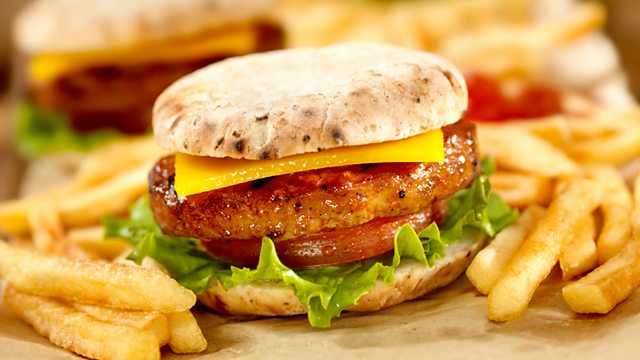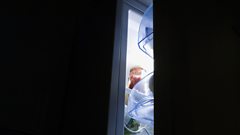Constant Cravings: Does Food Addiction Exist?
Could obesity be partly the result of an addiction to eating? Sally Marlow explores the latest evidence and asks how radical the solutions should be.
Could obesity, in some cases, result from an addiction, and if so, do we need to change the way we treat it?
When we think about addiction, drugs, alcohol or gambling come to mind. Though hardly uncommon, many people will go their whole lives without ever even dabbling in them. But could the everyday act of eating also be addictive? In excess, drugs, alcohol and gambling can cause massive physical and psychological harm, cutting across class, sex and age. But so can excessive eating. And if we're to believe alarming predictions about rising obesity levels, then perhaps we need to consider looking at overeating from a different angle.
Researchers around the world are asking the same question: is overeating a compulsive behaviour that exploits the same biological mechanisms we see in people addicted to drugs or alcohol? Is there such a thing as food addiction and how addictive are certain foods? In, Constant Cravings: Does Food Addiction Exist, Sally Marlow, a researcher in alcohol addiction at London's Institute of Psychiatry, explores the latest evidence underpinning the scientific basis for overeating, and asks just how radical should the solutions be?
In 2012, NeuroFAST, an EU research project began co-ordinating data on the relationship between overeating and addiction. Its mission is to achieve consensus on how overeating should be classified clinically, which might then lead to major shifts in treatment, public policy and attitudes to obesity.
Few of us, if we're honest, would consider obesity as little more than self-inflicted. And it's how many of us used to think about other addictions. Yet now we know that an individual's choices are influenced by a host of biological and environmental mechanisms: genes, brain chemistry and family history. Might overeating share these mechanisms?
Last on
Clip
Sally Marlow

Support Organisations
Overeaters Anonymous offers a programme of recovery from compulsive eating using the Twelve Steps and Twelve Traditions of OA. OA is not just about weight loss, weight gain or maintenance, or obesity or diets. It addresses physical, emotional and spiritual well-being, and welcomes everyone who wants to stop eating compulsively.Μύ To find a meeting near you use their online directory
If you have any general enquiries about OA in Great Britain email general@oagb.org.uk
Μύ
Beat is a national charity providing information, help and support for people with eating disorders and their familiesΜύΜύ Beat provides helplines for adults and young people, online support and a UK-wide network of self-help groups to help people beat their eating disorder.
Helpline: 0845 634 1414 (weekdays 10:30am-8:30pm; Saturdays 1pm-4:30pm
Youth Helpline (up to the age of 18):0845 634 7650 (weekdays 4:30pm-8:30pm; Saturdays 1pm-4:30pm)
Text service: 07786 201820
Μύ
Anorexia and Bulimia Care (ABC) provides personal advice and support to anyone affected by anorexia, bulimia, binge eating and all kinds of eating distress. They support sufferers and their family and friends towards full recovery.
Helpline: 03000 11 12 13 (Parent Helpline: Option 1; Sufferer Helpline: Option 2)
Μύ
The National Centre for Eating Disorders aims to treat compulsive eating, anorexia, bulimia and weight problems by means of support, prevention and training.
Phone: 0845 838 2040
Μύ
Weight Wise website, run by the British Dietetic Association, is an independent site with unbiased, easy-to-follow hints and tips - based on the latest evidence - to help you manage your weight for good. It will help you take a look at your current eating habits and physical activity levels and offer a practical approach to setting your own goals for lifestyle change.
Μύ
ΜύΜύ
ΜύBroadcasts
- Tue 30 Apr 2013 20:00Βι¶ΉΤΌΕΔ Radio 4
- Sun 5 May 2013 17:00Βι¶ΉΤΌΕΔ Radio 4


